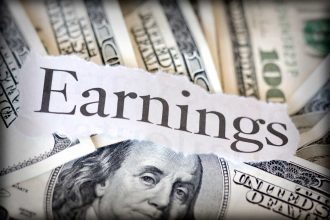The hard-seltzer boom has fizzled, but don’t count out
Boston Beer
just yet. The beaten-up stock looks ready to get off the mat this summer.
Boston Beer (ticker: SAM) was founded in 1984 by Jim Koch, who remains its chairman and controlling shareholder. Despite its name, the company today is more of a bet on the growth of the “beyond beer” category of alcoholic beverages, which includes hard seltzers, canned cocktails, hard cider, and flavored malt beverages.
Over the years, Boston Beer has developed a record of being an early entrant to emerging alcoholic beverage categories. Its flagship Samuel Adams Boston Lager helped ignite the craft beer revolution, Angry Orchard quickly became the U.S.’s top-selling hard-cider brand, and Truly came to market well ahead of hard-seltzer offerings from brewers such as
Anheuser-Busch InBev
(BUD) and
Constellation Brands
(STZ).
Truly, though, has gone from being the life of the party to a heck of a hangover. It was a massive hit during the Covid-19 pandemic, helping to send Boston Beer’s earnings soaring 70%, to $15.53 per share, in 2020. Management expected earnings of $22 to $26 in 2021, but made just $1.17 as hard-seltzer sales disappointed and Boston Beer was left with unsold perishable inventory. The company estimates that hard-seltzer volumes will be down by midteens percent this year.
But Boston Beer can still be the big fish in the smaller beyond-beer pond. AB InBev and
Molson Coors Beverage
(TAP) control more than 75% of U.S. beer sales, where Boston Beer has a market share of around 5%. In beyond beer—which is about one-fifth of beer volume—Boston Beer’s share is around 25%. More than 84% of the company’s volume in 2022 came from that category, with Truly making up the largest share.
This may be the year of Twisted Tea, which exemplifies Boston Beer’s culture of innovation and taking the long view, says CEO Dave Burwick. First launched in 2001, the malt-based hard tea has grown sales every year before taking off over the past year. That’s a function of new flavors, greater distribution in new states, and more attention from retailers. Boston Beer estimates that stores will devote 45% more shelf space to Twisted Tea this year.
A similar product at a larger beer conglomerate might have been axed years ago, instead of allowed to grow for two decades before becoming a mainstream hit, Burwick says. By growing at a 30% clip, Twisted Tea is offsetting Truly’s declining volumes. Should hard-seltzer sales stabilize, investors may come to better appreciate Boston Beer’s latest hit beverage and reward its stock. There is opportunity in Bud Light’s recent troubles, should light-beer drinkers gravitate more to hard seltzers this summer.
“With the prospect of Truly stabilizing (thanks to Bud Light share loss) and gross margins improving, we believe focus will return to the aspects of the portfolio that are growing (Twisted Tea),” writes Roth MKM’s Bill Kirk, who recently upgraded the stock to Buy, from Neutral, and lifted his price target to $386, from $274.
| Headquarters: | Boston |
|---|---|
| Recent Price: | $312.70 |
| 52-Wk Change: | -5.2% |
| Market Value (bil): | $3.8 |
| 2024E Sales (bil): | $2.1 |
| 2024E Net Income (mil): | $126 |
| 2024E EPS: | $10.38 |
| 2024E P/E: | 30.1 |
| Dividend | None |
E=estimate
Source: Bloomberg
The company is also doing what it can to right-size following the Truly boom and bust. Boston Beer is cutting overhead, saving on raw materials, and investing in greater automation in its brewing and packing processes, which should help improve profit margins. New machinery in its Pennsylvania and Ohio breweries to box multiflavor variety packs will save “multiple dollars” per case versus doing it by hand, Burwick says. The company just hired a chief supply chain officer from
Carlsberg
(CABGY), where he oversaw a much larger brewing operation. Management has a target of a 50% gross margin in three to five years, versus 2022’s 41%.
Wall Street is optimistic. Analysts expect Boston Beer’s earnings to grow by 35% in 2023, to $7.32 a share, despite a decline in revenue, which is expected to drop 3% to about $2 billion. A few years out, in 2026, analysts see earnings reaching $15.11 per share, close to the 2020 record.
To be sure, Boston Beer is now a show-me story after a tough couple of years. Barron’s thought the worst was over when we recommended buying the stock in February 2022, but investors who bought in then caught a falling knife: The stock dropped another 25% during the next four months, before rebounding to beat the market by about three percentage points in the year after our pick. There’s now plenty of negativity in the consensus—meaning the snapback could be powerful. At a recent $312, shares trade for around 36 times forward earnings, close to their average over the past five years.
There’s also underappreciated defensive potential in Boston Beer stock, which likely has a floor under it as an attractive acquisition target for the industry’s heavyweights. The company has net cash on its balance sheet. And alcohol sales have historically held up just fine during recessions.
The hard-seltzer bubble may have gone flat, but Boston Beer’s fridge remains well stocked. It’s time to buy the stock again.
Write to Nicholas Jasinski at [email protected]
Read the full article here



